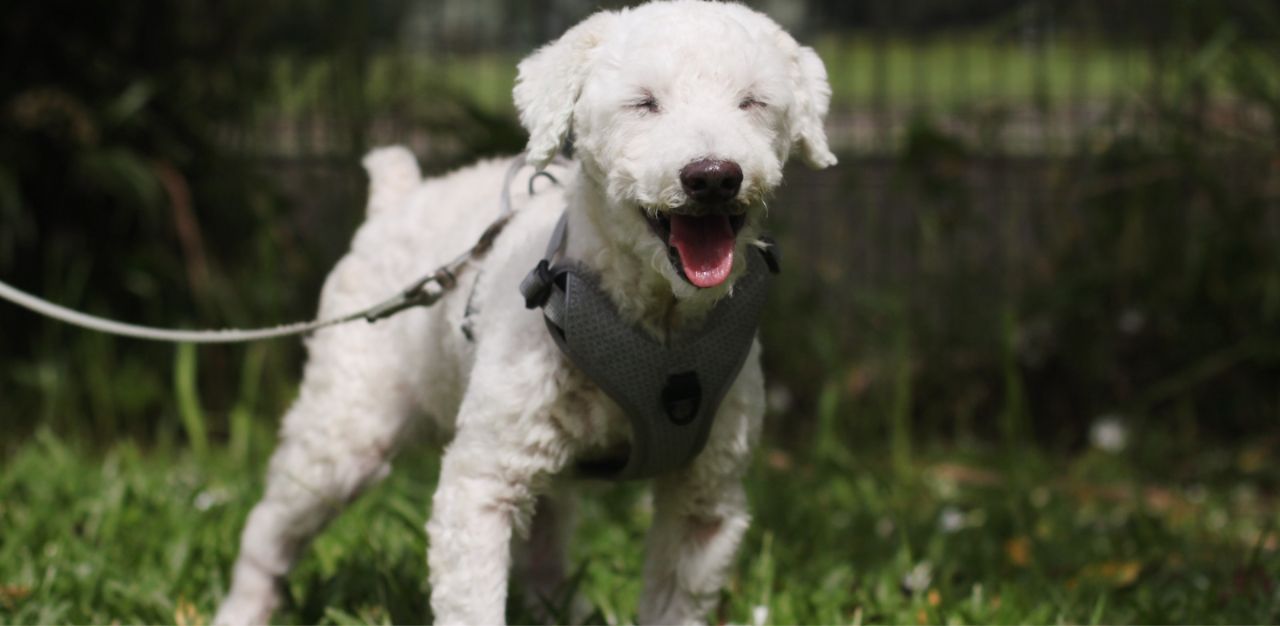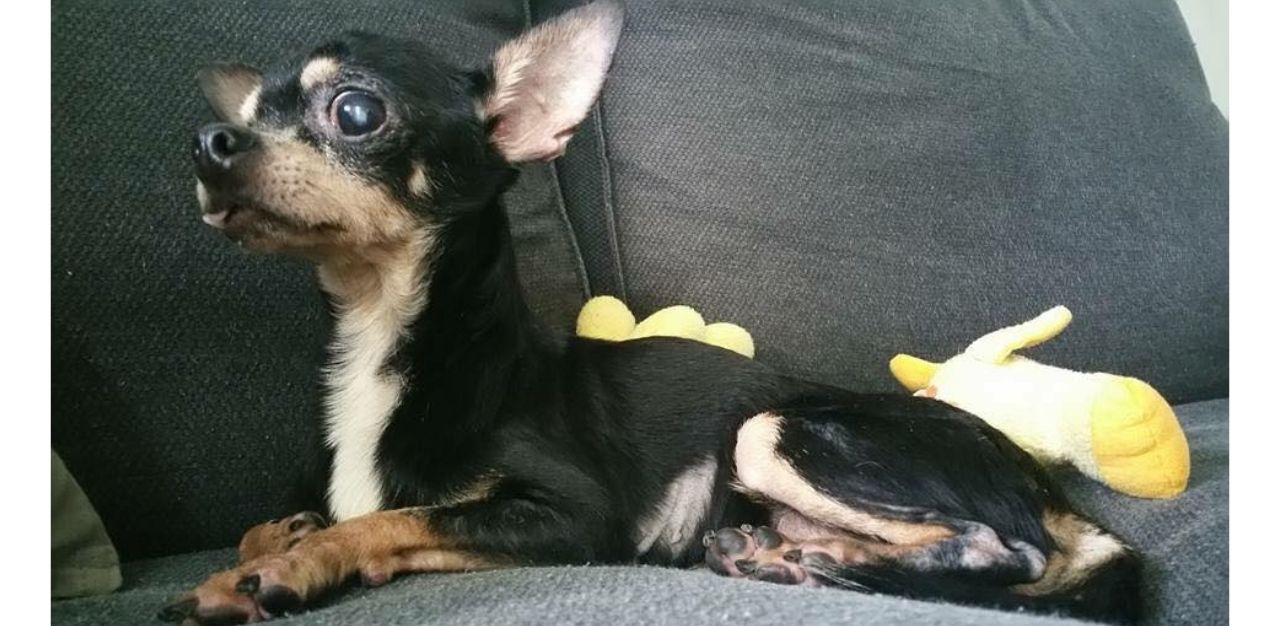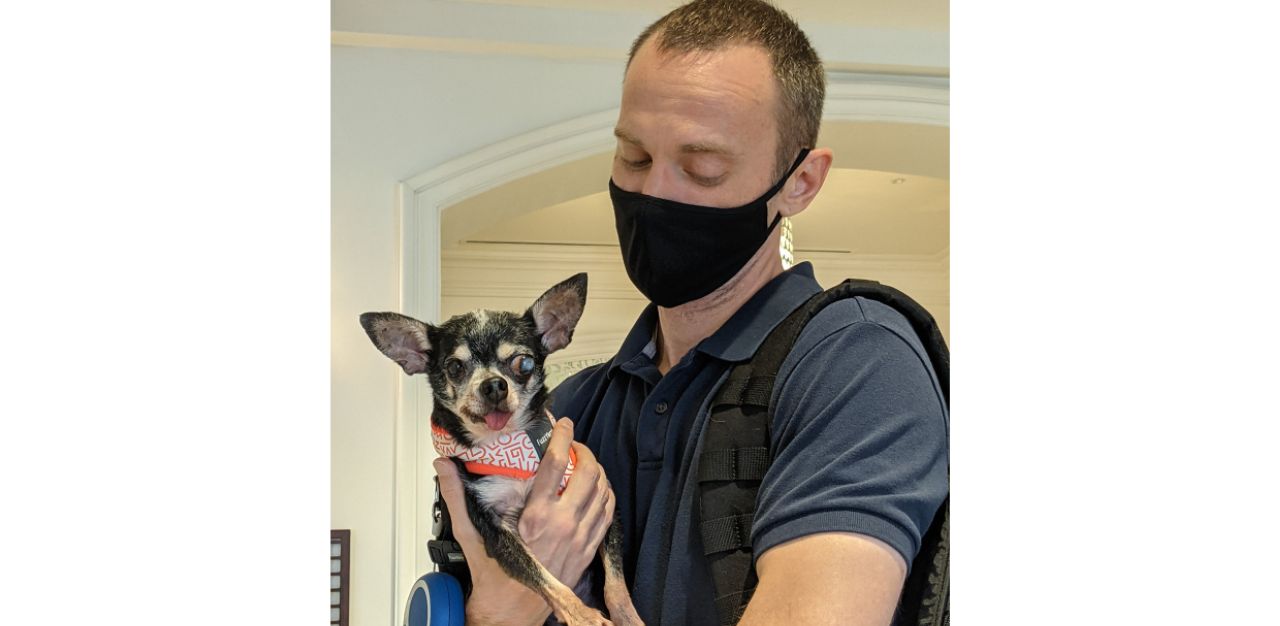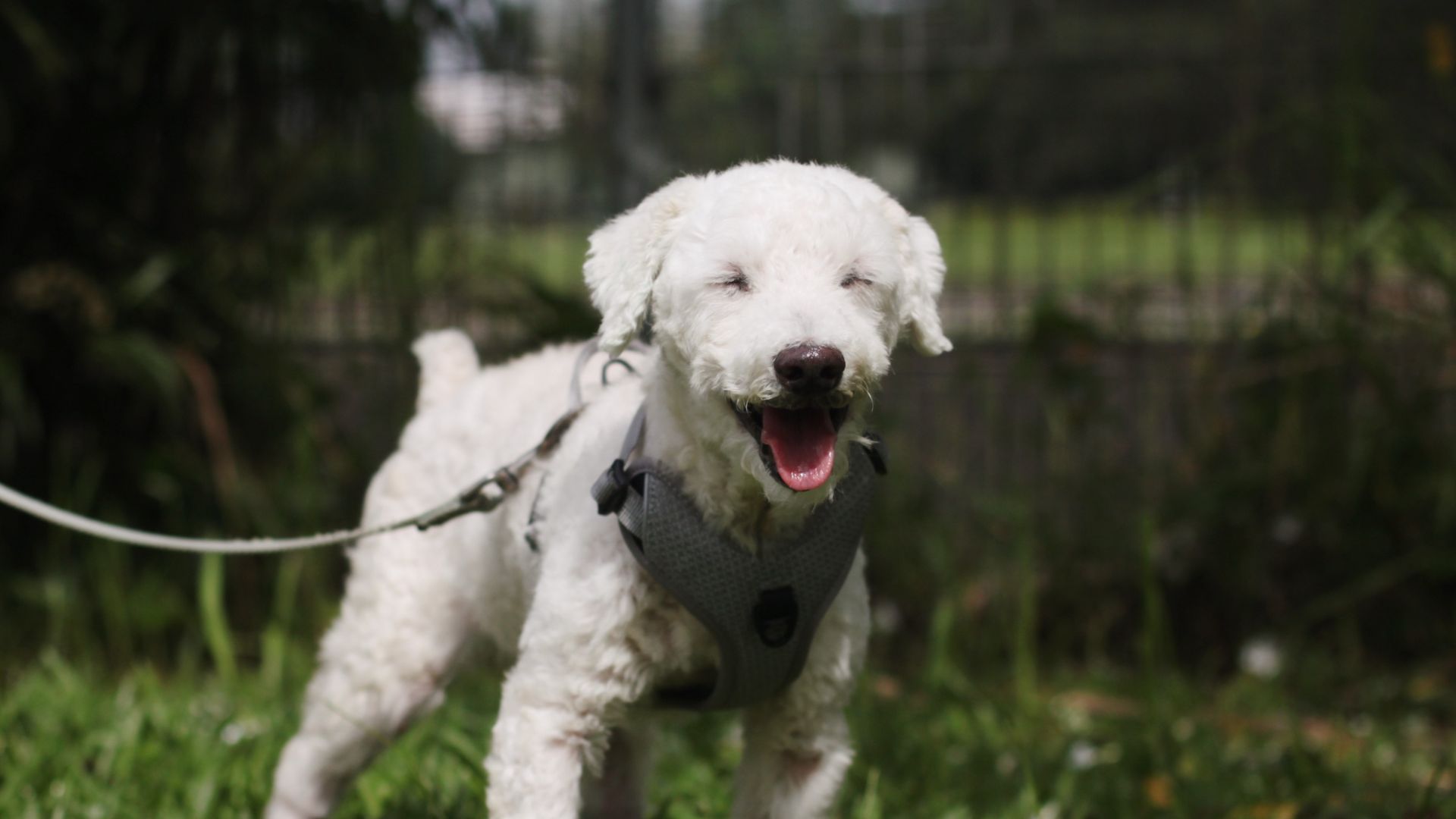Meet Macs, a 15-year-old poodle currently residing at the Society for the Prevention of Cruelty to Animals (SPCA) Singapore.
Macs was given up last October when his family’s human child developed an allergy to his fur.

Apart from his own few skin issues, Macs remains a jovial and healthy companion. One year on — because of his age, he is still waiting for that new home, that loving new family.
Older pets do not find homes as fast as puppies and kittens, and cats and dogs older than seven years often have to wait longer to get adopted. According to Ms Aarthi Sankar, the incoming Executive Director of SPCA Singapore, senior animals are most often abandoned or surrendered at a time when they need care the most.
There are two major challenges when it comes to rehoming rescued senior pets, she says.
“The first is that many potential adopters often worry about developing emotional attachments with an animal that is near the end of its life. The second is that with older animals, there may be medical issues that require additional care and can be costly,” she says.
While it can sometimes be emotionally daunting for adopters, it is also an incredibly rewarding and beautiful experience. “No matter how short a period an animal has with its new family, it is one that adds value to both parties. Our senior animals deserve loving homes too,” she adds.
Derrick Tan, founder of animal welfare and rescue group Voice For Animals (VFA), agrees. “Sometimes we do have amazing people who would only want older dogs that have been at our shelter for the longest time,” he says.
Mrs Lina Lewis, 43, is one such individual.

After seeing photos of a five to seven-year-old chihuahua “on the brink of death” on VFA’s Facebook page, Mrs Lewis and her husband knew they had to adopt him.
“Toof is an ex-breeding dog who was barely hanging on to dear life, and we knew he’d not get picked if we didn’t do so ourselves,” says Mrs Lewis.
He was severely malnourished, weighing just above 1 kg, has a broken jaw, rotting teeth, and two almost blind eyes. Toof also had heartworm, which meant that “if he got too excited, he would just drop dead”.
Being mentally and financially prepared to nurse Toof back to health, Mrs Lewis waited a year for his heartworm to be cured before they put him through surgery to remove all his teeth, which “were so rotten his breath smelled like the arse crack of Hades”.
Today, Toof is in the pink of health, having doubled in weight and has zero health issues. “Even if he dies any day now — we think he must be around 11 to 13 years old — we feel we have given him a quality life,” she adds.

Old is gold
According to Mrs Lewis, adopting a senior dog exempts owners from the “crazy puppy years”. “Poorly-raised pups can be destructive and some people struggle with training dogs, especially if they have no experience. But senior dogs are so very chill,” she says.
At the same time, adopters of senior dogs must realise the emotional histories these old-timers bring into their lives. Mr Tan is extra selective about who his rescues end up going home with.
“In order for one to adopt a senior dog [at VFA], one must have experience in caring for the geriatric, and commit to the very end of their lives. We always ensure that those who want to adopt a senior dog should be well prepared emotionally and also financially, since their medical bills can be quite high,” he says.
Similarly, the team at SPCA Singapore conducts a counselling session at any senior pet adoption, to find out what adopters are looking for in a companion animal — matching their lifestyle, habits, and the type of home environment they will be able to offer the elderly animal. “We also try to provide as much in-depth information about the animal’s medical history and background as possible,” says Ms Aarthi.
When Ms Jennifer Lim adopted a senior dog a decade ago, she never looked back. Her first ex-breeding dog Ini fit her family’s needs better than a puppy would.
“Ini became family. We got used to having this not-so-noisy dog who doesn’t do typical ‘dog’ things, like barking at the mailman or playing fetch,” she says. “My parents are elderly, so they don’t like when a dog over-barks.”
After Ini died, Ms Lim went on to adopt a 10-year-old mini-schnauzer Santa from SPCA’s rehoming page. “He was still very sprightly at his age. He had a thousand toys, played fetch, and ate snacks,” she says.
So it came as a shock when he died at the vet’s just a year later.
“He had a good year with us, but we were quite traumatised. We adopted him during the Covid-19 period, and having a noisier dog helped because things were quite quiet then,” she says.
This, however, did not stop Ms Lim from adopting yet another furry friend in need. She found that what helped was having a community for a support system.
“When I got Santa, I joined this mini-schnauzer Facebook group for all the indulgent mini-schnauzer owners in Singapore,” she says. “Every other day, someone would also lose his or her dog, and we would share in the grief. We also learn how people do memorials for their dogs as well.”
Today, the 57-year-old retiree is fostering yet another mini-schnauzer, this time from VFA. She is Butter and she is blind.
Being familiar with blind people and guide dogs, the former executive director of the Singapore Association of the Visually Handicapped (SAVH) finds it “a serendipitous work of fate” that she is now caring for a blind dog.
“Butter refuses to be leashed and our friend is very confident. She goes walking three times a day, and would listen to my helper’s voice on walks to guide her,” says Ms Lim.
These little behaviours address the misconception that senior pets might find it harder to integrate with new environments. “Many senior pets are still able to learn new things and settle in easily into their new homes,” Ms Aarthi says.
“You learn their quirks without expecting them to adapt to yours. Assimilation and integration into the household are all about patience and zero expectations,” adds Mrs Lewis.
Agreeing, Mr Tan adds, “The most important thing about caring for a senior dog is still lots of love. They might not want to do as much as a young dog, but they are still active. Their brains are still going. All they need is regular health checks. You’re going to have to bring them into the vet a little more often to help them stay healthy and prolong their vitality.”
If you wish to adopt Macs or other senior dogs like him, check out SPCA Singapore or Voices For Animals’ adoption Facebook pages.
Join the conversations on TheHomeGround Asia’s Facebook and Instagram, and get the latest updates via Telegram





























